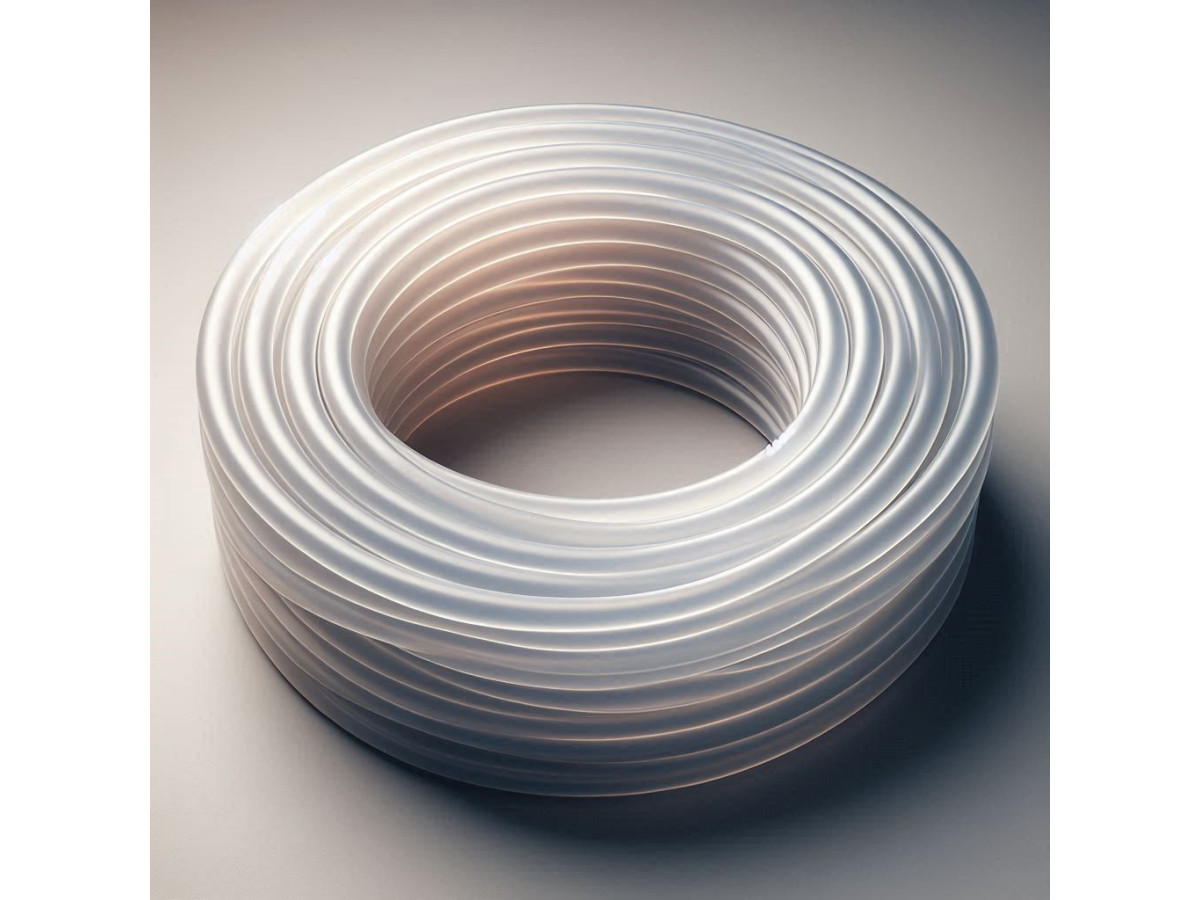Silicone tube is a product, characterized by unique chemical and physical properties, and is used in various industries for transporting liquids. Such material is capable of functioning in an aggressive environment, is biologically resistant, durable, elastic, and can withstand chemical, mechanical and physical impact. We suggest considering the advantages, varieties and selection of silicone tubes.
Types of silicone tube
Silicone tubes are available in several varieties:
- Medical or food: This option is used with biological substances. Dyes, special reagents, and other additives are added to silicone, making the tube physically durable. In the medical industry, it is used to transport drugs and solutions, in the food industry - for liquid and gas components.
- Porous: Such silicone tubes are used as a shock-absorbing, sealing and insulating material. They are elastic and light, completely sealed, and serve as seals in mechanical engineering, construction, energy, etc.
- Reinforced: These tubes are made of three layers (internal, specially reinforced and external). The reinforcement process itself is carried out using two technological processes. The first is to create a mesh base, then pour in a strong silicone mixture. The second is to make a spiral frame and then also pour in a silicone mixture.
- Monolithic: This silicone tube is universal and suitable for various tasks, regardless of their complexity. It is used in electrical engineering, serves as protection for conductors from high humidity and mechanical damage.
- Heat-resistant: The silicone tube can withstand temperatures up to +240 degrees, without losing elasticity. Special additives strengthen the structure of the material, make it more heat-resistant, and increase thermal stability up to +300 degrees.
With such a range, you can choose the most suitable silicone tube that meets standards and specific purposes.
Advantages of using silicone tubes these days
Silicone tubes have a number of advantages, due to which they have become very popular:
- Resistance to aggressive influences: These tubes are not afraid of the chemical influence of acids, salt solutions and alkalis.
- No toxins: Even at elevated temperatures, the tube does not emit harmful components.
- Hypoallergenic: Silicone tubes can come into contact with the body, be used in the medical industry, and do not cause allergic reactions.
- Low adhesion: This product does not stick to other components, so the silicone tube does not get clogged.
- Fire resistance: When exposed to open fire, silicone does not emit toxic smoke and does not support combustion.
- Resistance to atmospheric precipitation: Silicone tubes are resistant to sunlight, high humidity, dust, dirt, and ultraviolet radiation.
- Wide range of shades: Silicone tubes are available in various colors and can also be completely transparent.
Due to its properties, the silicone tube is optimal in various fields. It is resistant to wear and tear and negative influence of environmental factors.
How to choose the right silicone tubes
To select the most suitable silicone tube, it is necessary to take into account certain factors regarding its features:
- Outer radius: Silicone tubes must meet the required dimensions, be suitable for the tasks and purposes.
- Thickness: This indicator is responsible for the hardness of the silicone material, the ability to withstand increased pressure inside and maintain shape when bending the silicone tube. If the wall is thin, even with minimal bending, creases will begin to form, preventing the transportation of gas and liquid substances. The thicker the wall, the higher the quality of the product, ensuring the reliability of the movement of various substances with increased stress inside.
When choosing silicone tubes, consider all the above factors and intended purposes. This product is practical, reliable and durable.
Conclusion
Silicone tubes are characterized by increased resistance to premature wear, negative factors, corrosion, and aggressive environment. They withstand significant pressure and high temperatures. Even under chemical influence, they retain their original qualities. The advantages include resistance to mechanical damage, long service life, strength, reliability, practicality, increased elasticity and flexibility. The material is optimal for various industries, and is especially relevant in the food and medical industries (it does not cause allergies, can be disinfected, and does not cause harm when in contact with the body).

